Obstacles can't keep UMMC's Class of 2020 from crossing the finish line
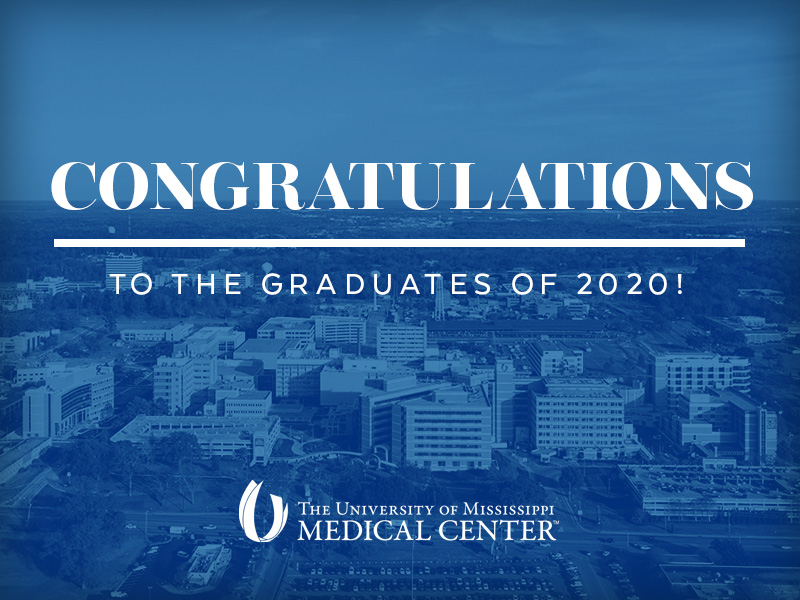
When a worldwide pandemic forced the School of Medicine at the University of Mississippi Medical Center to end spring break by abruptly moving the traditional classroom experience to online learning, students weren’t the only ones getting a lesson.
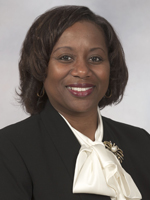
“One of the things that was underappreciated was how students who are not in the clinical part of the program valued their interaction with the faculty,” said Dr. Loretta Jackson-Williams, vice dean for medical education and professor of emergency medicine in the Department of Medicine. “While they’ve been able to receive the class content, what they really want is interaction with the faculty.
“We think about knowledge transfer in a vacuum. There are nuances to it. The in-person piece … we recognize the value of it now.”
As the School of Medicine and the John D. Bower School of Population Health today hold a virtual commencement, educators will be doing their best to replace the usual boisterous gathering in the Mississippi Coliseum. The schools of Nursing, Graduate Studies in the Health Sciences and Pharmacy earlier this month held online ceremonies to recognize their Class of 2020. The School of Dentistry and individual departments in the School of Health Related Professions also will laud graduates.
“I think there’s a level of acceptance, but I don’t know if there’s a level of excitement,” Jackson-Williams said of the 145 SOM graduates. “Let’s be honest. Some of them feel robbed.
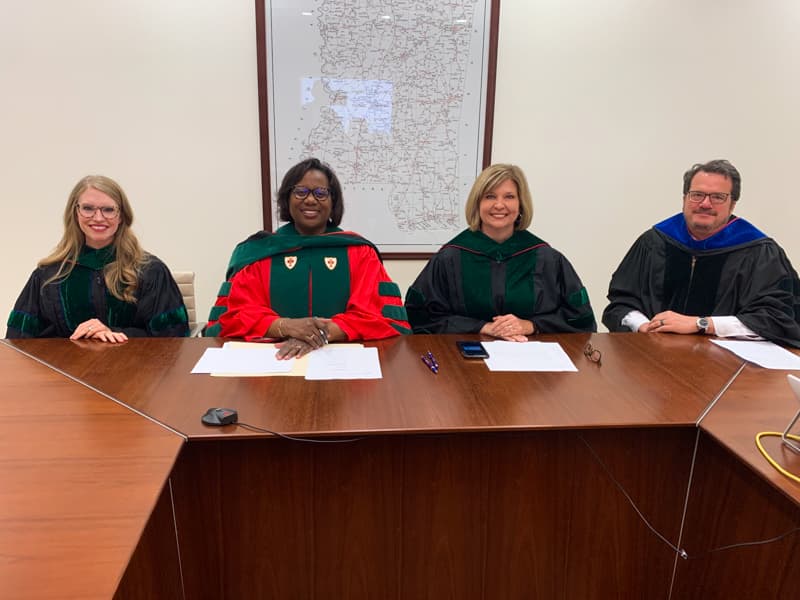
“But if you are a medical professional and you know the science of the spread of this disease, you can’t participate in something that signifies that the science is not important. That’s hard.”
It’s a testament to the dedication and quality of faculty that in very little time, education at the Medical Center was transformed like never before. All told, there are 901 May graduates spread among the seven schools.
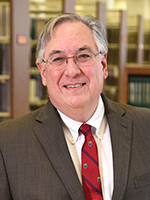
“Over spring break, all of the faculty did a hard pivot to put their content and courses online. It was about a 10-day period, and they were able to do that,” said Dr. Ralph Didlake, chief academic officer and associate vice chancellor for academic affairs.
But, as Didlake said, there were bumps in the road. “For some programs, it was a seamless transition. For others with specific training needs, especially clinical training needs, it became a real problem,” he said.
“It was quite complicated. We had the CDC guidelines. We had the governor’s stay at home order and the mayor’s mandate. We had the policies of our own crisis management team, and we had recommendations from individual accreditors about continuing our training.”
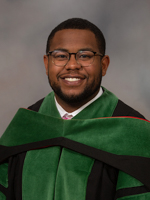
New SOM graduate Logan Wilson of Hattiesburg had finished most of his clinical rotations and core requirements when students got word that they wouldn’t be coming back after spring break. “It gave us the feeling of not knowing what was expected of us,” he said.
Adjustments included four-week clinicals transforming into two-week online training, Wilson said. “I can only imagine how difficult that could have been,” he said of classmates who went that route. This summer, Wilson begins an emergency medicine residency at the University of Alabama-Birmingham.
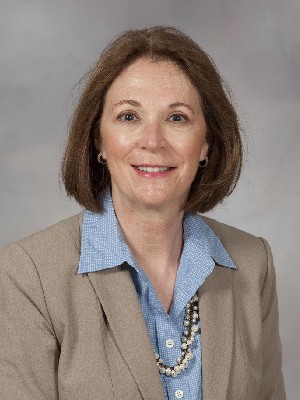
Classes were already online for about half of SHRP’s students. “But, our larger departments, Physical Therapy and Occupational Therapy, along with Radiologic Sciences and Medical Laboratory Sciences, had one week to convert every instructional strategy to online learning,” said Dean Jessica Bailey.
“We are thankful that we had in-house experts that prepared helpful instructional materials for our faculty, and I am personally thankful that I never heard one complaint from faculty about the transition,” Bailey said. “Our students have also been amazing and have embraced the transition to online learning. Many of our disciplines are very hands-on, so this has been quite a challenge - but they have nailed it.”
SHRP is preparing to teach 50 new PT students and 40 new OT students anatomy lab without face-to-face instruction, and without the ability to work around a cadaver. “I have no doubt that they can do it,” Bailey said.
For Stacey Ferguson of Pearl, one of 191 new SHRP graduates, the disruption in classes thankfully wasn’t a disruption. She completed her coursework online for her B.S. in health informatics and information management while working full time as performance improvement coordinator for the Mississippi Center for Emergency Services.
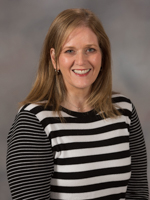
What she will miss, Ferguson said, is getting to thank her professors face-to-face at commencement “My teachers were such a big influence on me,” Ferguson said. “To have that interaction, and to acknowledge all the work that they did to help us, would have been great.”
Dr. Natalie Gaughf became SOPH interim dean on Feb. 27, just in time for COVID-19 to sweep into Mississippi and disrupt the new school’s way of life.
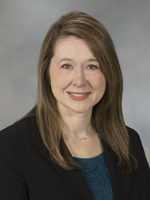
“We have five programs, and two were already online,” Gaughf said. “We had to move the population health science Ph.D. program online, and the master’s and Ph.D. in biostatistics and data science online. That’s been very challenging because they are research- and math-based programs.”
The biggest obstacle she said, has been students’ ability to conduct research. “It’s affected graduates trying to complete their thesis or dissertation, and it’s affected oral exams,” Gaughf said. Eleven are scheduled to receive degrees, she said.
But, they have persevered. “I leaned on a very capable population health faculty and staff. They understood what we needed, and they made it happen,” Gaughf said. “There’s been no question of if we could do it, or how we would do it. People just jumped in. The majority of students will graduate on time.”
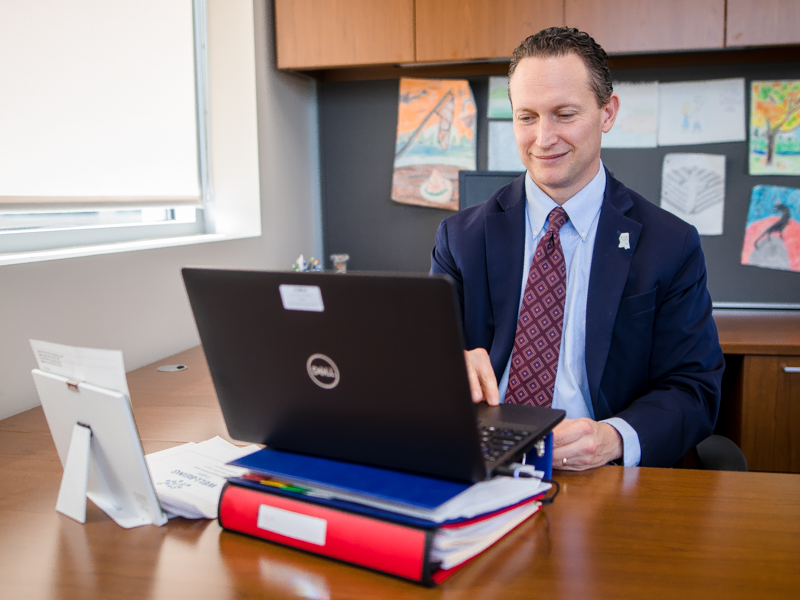
Kirby Hobbs of Ridgeland, UMMC director of business process improvement, sought an executive master’s in population health management so that he could learn more about value-based care programs and how they are shifting toward reimbursement based on quality, not quantity.
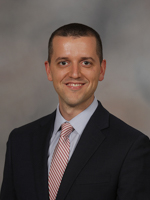
“I’d never had formal training to understand the details of the payment models,” Hobbs said. “I also got a broad perspective of the root causes of health disparities.”
The pandemic had little effect on his studies. “This program was well prepared for COVID. It was a wise setup,” he said of the mostly online courses. It was disappointing, though when he and his classmates didn’t get to go to the Population Health Colloquium in Philadelphia, Pennsylvania, canceled due to the virus, that would have been a high point of their weekend seminar schedule.
Even before spring break, School of Nursing Dean Julie Sanford suspected she and faculty would be faced with challenges in delivery of education. “We started having crisis management meetings, and we gave everyone a heads’ up,” she said.
But the pandemic gave Sanford and the school’s leadership an opportunity to enrich instruction, especially going forward. “We shifted toward mastery of competencies, not so much in class, but in the clinical setting,” she said. “We framed our thinking not on getting in so many hours, but in mastering the competencies at the graduate and undergraduate levels.”
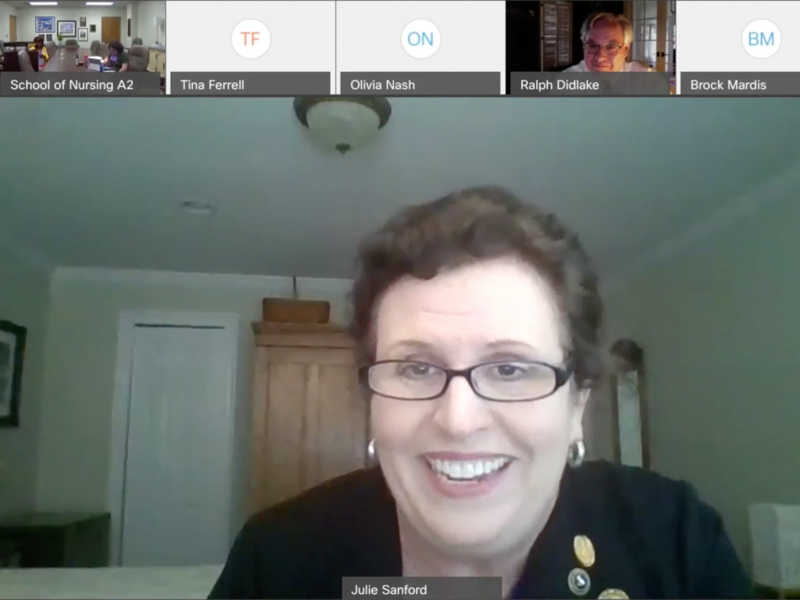
To do that, they relied on virtual simulation, which was new for some students who hadn’t already mastered competencies at the midway point of the spring semester.
“A lot of our programs are online, but the traditional and accelerated bachelor of science in nursing are not,” Sanford said. “And, some of the modalities are not lectures. They’re team-based learning. Our students have done very well and met the learning outcomes.”
She’s proud of her students for being flexible and seizing the opportunity to become proficient caregivers. “It’s not just what they know. It’s what they can do,” Sanford said. “We feel confident that those who graduated can provide safe patient care.”
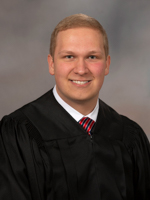
Andrew Ketchum of Walnut, one of 176 students in SON’s Class of 2020, said he and other students adjusted to changes in how they’d do their clinical work and take their final exam. “I took it in my dining room,” said Ketchum, who received his B.S. in nursing. “We changed over to Zoom meetings with our professors so that they could keep us up with our studies.”
He and other students took part in a virtual graduation. “My family and I met up in my living room, and my mom pinned me. In some ways, that was more special than a normal graduation,” Ketchum said.
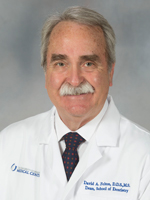
The challenge of continuing both classroom and clinical education for the School of Dentistry’s 40 graduating dentists and 23 graduating dental hygienists was monumental, said Dean David Felton. “There was nothing easy about it,” he said.
“We had to go through our accrediting agency to get approval for using alternative methods for testing clinical competencies, and we had to switch all face-to-face lectures and seminars to online only,” Felton said. “All clinical activities were suspended, and our third- and fourth-year dental students spend most of their time treating patients.”
When graduating dental and dental hygiene students take their licensure exams, it will be in the SOD simulation center. “As long as this school has been in operation, it’s been a live patient exam,” Felton said. “This time, it will be a simulated patient.”
The school plans to record a commemorative video for students that includes comments from leaders, awards and information on each graduate and where life will next take them. “They will get it on a jump drive when they get their diploma,” Felton said.
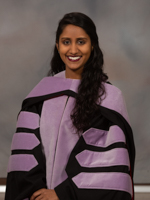
Missing the rituals of spring, from student get-togethers to walking at graduation, has been emotionally painful for SOD graduate Ambika Srivastava of Meridian. “Before spring break, I didn’t realize it would be the last time that 42 of us would be sitting in a lecture together for four hours,” Srivastava said.
This summer, she fulfills a childhood dream by moving to Alaska. Her plans to enter public health dentistry, though, are on hold because of a hiring freeze for those who have that calling. “So, I’ll be doing private practice, with the intent of public health in the future,” Srivastava said.
Spring break might not have been relaxing for Dr. Joey Granger, dean of the School of Graduate Studies in the Health Sciences, but it certainly was productive.
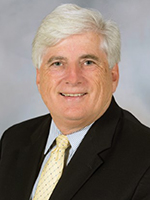
“It gave us time to transition,” said Granger, whose school has 104 new graduates. “The Monday after spring break, our classes were all online. We didn’t miss a beat. We didn’t have a delay in any of our courses.”
“The major impact on us has been students who have finished their courses and completed comprehensive exams, and were doing 100 percent research,” Granger said. “They couldn’t come back to campus, so we’ve encouraged them to catch up on their reading and manuscripts that needed to be written.”
The school produced an online, real-time graduation program attended by more than 160 people. Ironically, Granger almost wasn’t part of that group, thanks to a technology glitch. “I couldn’t get on with my home computer, and I couldn’t get on with my work computer. I was finally able to get on, but without voice,” he said.
SGSHS graduate Meagan Wier of Louisville is taking her master of science in biomedical sciences to the School of Medicine, where she begins classes this fall. She’s spending the summer working with Dr. Jorge Vidal, associate professor of microbiology and immunology, and said it’s been fascinating to watch the pandemic unfold as she studies microbiology.
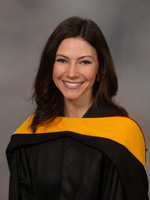
“I have learned so much as a person this year, and being in the BMS program has confirmed that I really do want to go on to medical school. It was a great decision to enroll,” Wier said. “It was a fantastic way to get my feet wet.”
The School of Pharmacy’s 99 graduates took part in the University of Mississippi’s live celebration for graduates, family and friends on May 9. On May 5, the class had a virtual time of celebration with SOP administrators and leaders of pharmacy professional organizations.
The first two years of pharmacy school are completed at UM in Oxford. The third and fourth years of the pharmacy program are mostly clinically focused and are based out of the school’s building on the UMMC campus.
“The Class of 2020 has shown tremendous commitment to excellence in education, research and service,” said SOP Dean David D. Allen. “These graduates have been challenged academically, as well as during these unique circumstances, and prevailed. I’m excited to watch them make a difference in a dedicated profession that strives to advance health care.”
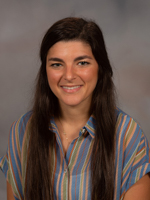
Madison resident Mary Reagan Baladi Richardson was two weeks into her final pharmacy clinicals when COVID-19 derailed it. She and her classmates finished that part of their education via a month-long online drug information-based clinical. “I appreciate the ability of the school to come up with something quickly to make sure that we could graduate on time.”
She has accepted a one-year community pharmacy residency with the Mississippi State Department of Health. “I’m very excited to start in public health in the midst of all this. It will be very interesting,” Richardson said.
Canceling traditional commencement, Didlake said, “was not a decision that was taken lightly.
“This is our once chance every year to throw a party,” he said. “Not only do we get to see the faces of the graduates, we get to see the excitement of the families. We didn’t get to do that this year.
“It’s a loss. We’ve had to grieve that loss.”


